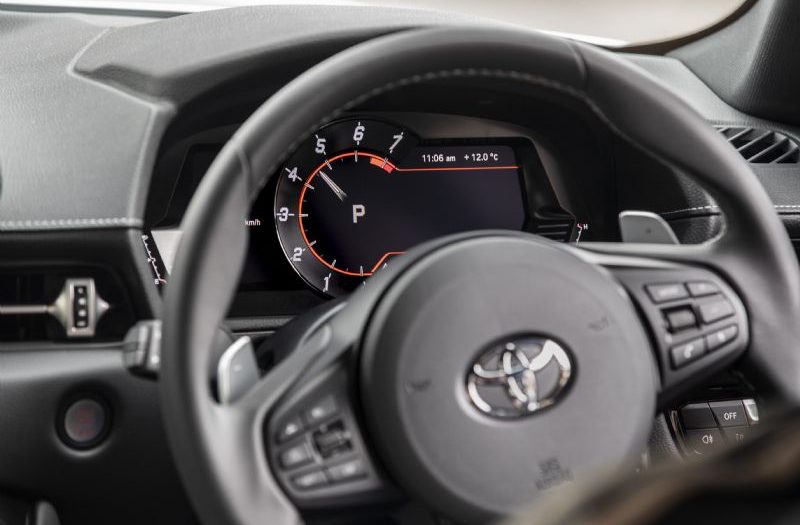ONCE AGAIN, BUYERS are being inconvenienced with yet another vehicle recall, this time affecting Toyota FJ Cruiser, Camry, Corolla, Kluger, Hilux, Landcruiser and Prado vehicles produced between September 2013 and June 2015 and September 2017 and July 2019. The total number of vehicles involved is 45,683.
The involved vehicles are equipped with a fuel pump which may stop operating. If this were to occur, warning lights and messages may display on the instrument panel, and the engine may not run smoothly. This can result in a vehicle stall, and the vehicle may be unable to be restarted. If a vehicle stall occurs while driving at higher speeds, this could increase the risk of a crash.
For all involved vehicles, Toyota dealers will replace the fuel pump with an improved one free of charge.
Depending on the vehicle, it is expected that it will take approximately 2 to 4 hours to replace the fuel pump. However, depending upon the Dealer’s work schedule, it may be necessary for the owner to make the vehicle available for a longer period of time.
Toyota Australia will provide all owners of involved vehicles details of this safety recall campaign by mail to their last known address. To update your contact details, please call the Toyota Recall Campaign Helpline on 1800 987 366 (Monday to Friday 8:30am-7:00pm AEDT) or click here.
Owners with additional questions or concerns are asked to contact their local/preferred Toyota Dealer in the first instance or the Toyota Recall Campaign Helpline on 1800 987 366 (Mon-Fri 8:30am-7:00pm AEDT). Please quote your 17-digit Vehicle Identification Number (VIN).
A total of 45,683 vehicles are involved in Australia, including FJ Cruiser, Camry, Corolla, Kluger, Hilux, Landcruiser and Prado.
| MODEL NAME | MODEL CODE |
WMI | VDS | CD | VIN RANGE | PRODUCTION PERIOD | QTY | ||
| FROM | TO | FROM | TO | ||||||
| CAMRY | GSV70 | JTN | BZ3HK | # | 03000208 | 03008005 | 22-Dec-17 | 14-Jan-19 | 1436 |
| COROLLA | ZRE172 | MR0 | 53REH | # | 05308102 | 05318524 | 23-Dec-17 | 04-Jan-19 | 6947 |
| FJ CRUISER | GSJ15 | JTE | BU11F | # | 0K177892 | 0K221519 | 02-Sep-13 | 03-Jun-15 | 2948 |
| KLUGER | GSU55 | 5TD | BZ3FH | # | 0S700023 | 0S999995 | 08-Nov-17 | 03-Jul-19 | 7503 |
| GSU55 | 5TD | DZ3FH | # | 0S700016 | 0S999938 | 08-Nov-17 | 03-Jul-19 | 2694 | |
| GSU50 | 5TD | YZ3FH | # | 0S240574 | 0S343973 | 08-Nov-17 | 03-Jul-19 | 830 | |
| GSU50 | 5TD | ZZ3FH | # | 0S240485 | 0S344083 | 08-Nov-17 | 03-Jul-19 | 11955 | |
| HILUX | TGN121 | MR0 | EX3CB | # | 01113004 | 01124772 | 22-Sep-17 | 28-Feb-19 | 9600 |
| HILUX | TGN121 | MR0 | EX3CD | # | 01371537 | 01380668 | 22-Sep-17 | 03-Dec-18 | 1171 |
| PRADO | GRJ150 | JTE | BU3FJ | # | 0K066256 | 0K090948 | 06-Sep-13 | 02-Mar-15 | 483 |
| LC200 | URJ202 | JTM | HX05J | # | 04053892 | 04093780 | 11-Sep-13 | 27-Feb-15 | 85 |
| LC200 | URJ202 | JTM | HX09J | # | 04057908 | 04092505 | 28-Oct-13 | 29-Jan-15 | 31 |
| Total | 45683 | ||||||||
Note: Although the involved vehicles are within the above VIN ranges, not all vehicles in these VIN ranges were sold in the Australian market.
(#) indicates additional check digit (alpha or numeric).
The involved vehicles are equipped with a low-pressure fuel pump, located in the fuel tank, that supplies fuel pressure to the fuel injection system. These fuel pumps may include impellers (the rotating component within the low-pressure fuel pump that drives the fuel through the pump), which have been manufactured with lower density. If these impellers are also of a design with lower surface strength or of a different design but were exposed to production solvent drying for longer periods of time, higher levels of surface cracking may occur. This may cause excessive fuel absorption to occur, resulting in impeller deformation. In some cases, the impeller may deform to a point that creates interference with the fuel pump body, which may cause the fuel pump to become inoperative.
An inoperative fuel pump could result in illumination of the check engine and master warning indicators on the instrument panel, the engine not running smoothly, the engine not starting and/or vehicle stall while driving at low speed. In rare instances, vehicle stall could occur while driving at higher speeds, increasing the risk of a crash.
Symptoms and warnings of the condition may include illumination of the check engine and master warning indicators on the instrument panel, the engine not running smoothly, the engine not starting and/or vehicle stall.
This is the same issue as the recall initiated in North America in January 2020. After further investigation, Toyota is now initiating a global recall and adjusting the scope of affected vehicles in North America.
